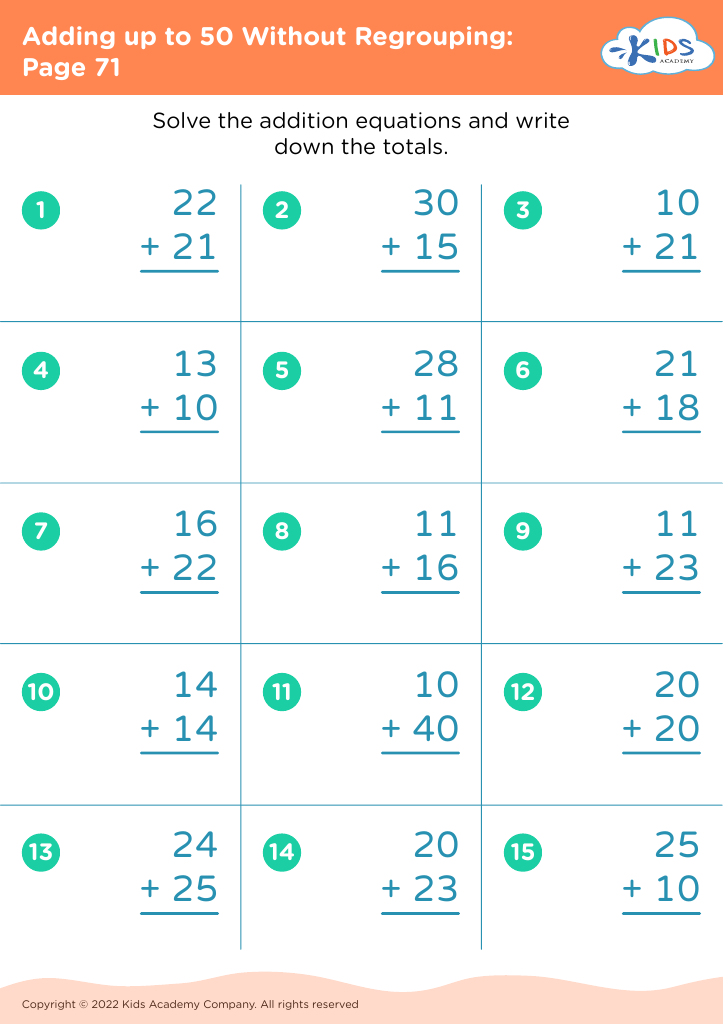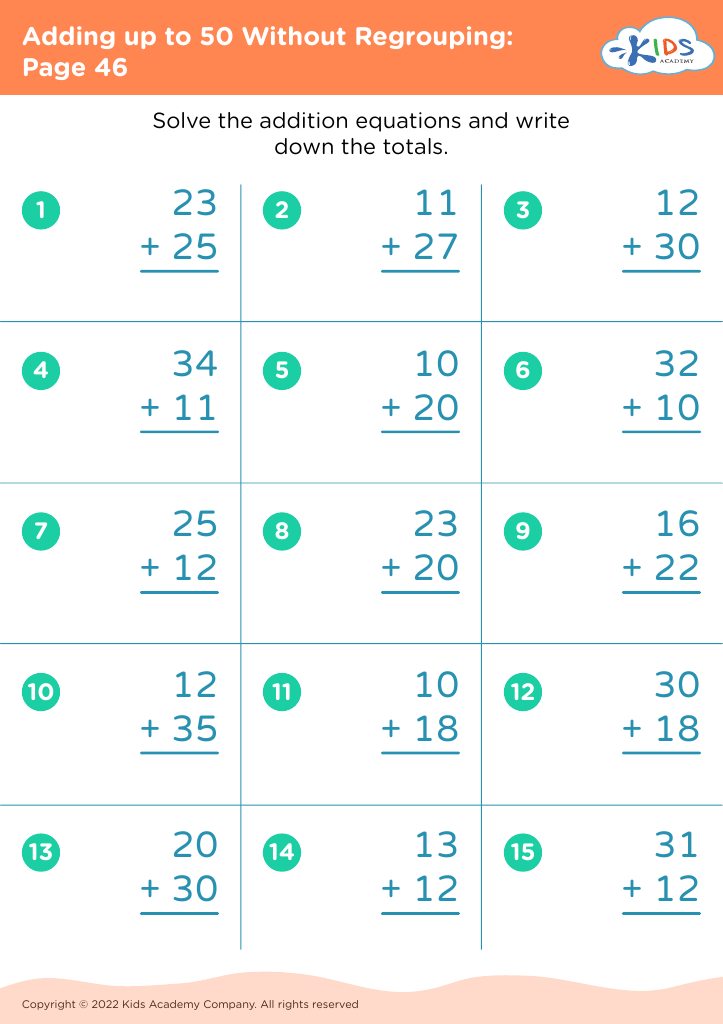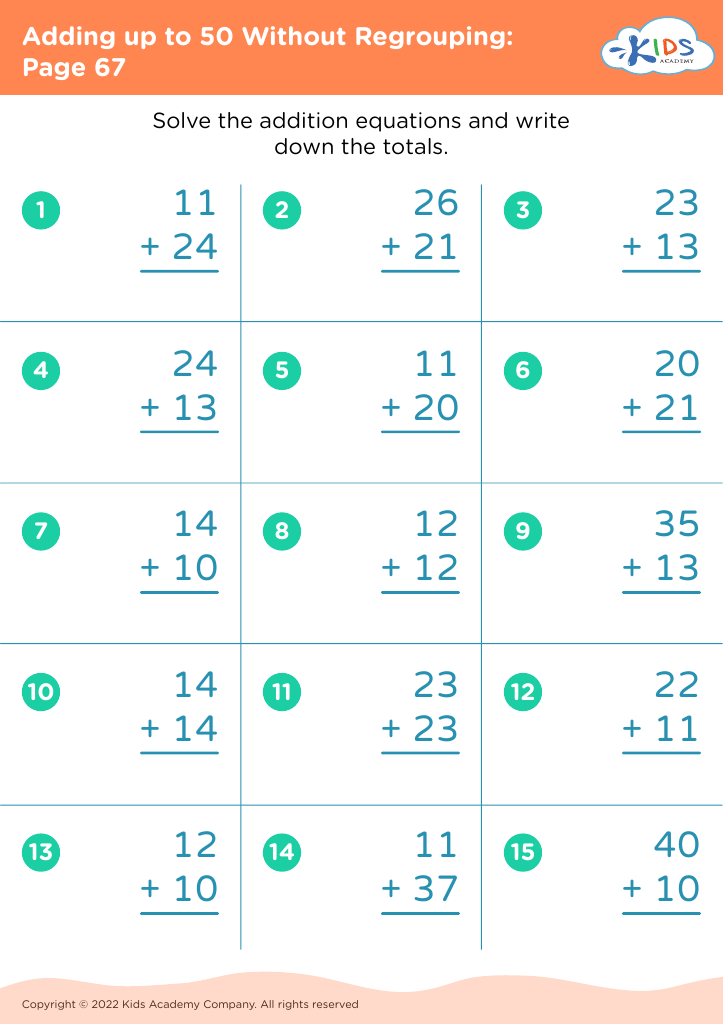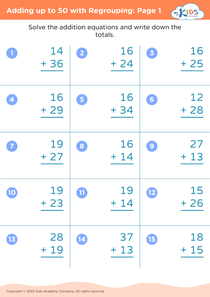Counting practice Adding up to 50 Without Regrouping Worksheets for Ages 8-9
5 filtered results
-
From - To
Enhance your child's math skills with our Counting Practice Worksheets designed for ages 8-9! These engaging activities focus on adding numbers up to 50 without regrouping, allowing young learners to build a strong foundation in arithmetic. Each worksheet features colorful illustrations and a variety of problems to make learning fun and interactive. By practicing these essential counting and addition skills, children will boost their confidence in mathematics while developing critical thinking abilities. Perfect for a classroom setting or at home, our worksheets offer parents and teachers a valuable resource for reinforcing math concepts in an enjoyable way. Start counting with confidence today!
Counting practice and adding up to 50 without regrouping are essential skills for children aged 8-9, and both parents and teachers should prioritize these exercises. Mastering basic addition builds a strong foundation for mathematical understanding and promotes confidence in problem-solving abilities. At this age, children are transitioning from simple arithmetic to more complex math concepts, making it crucial to ensure they can perform basic addition fluently.
By focusing on addition without regrouping, children can develop number sense and improve their ability to mentally visualize numbers, which is a vital skill for higher-level math. This practice also enables students to see patterns and relationships between numbers, reinforcing their understanding of the base ten system.
Moreover, consistent counting practice fosters focus and discipline, which are valuable skills in all academic subjects. When parents and teachers engage children in these exercises, they can better support their learning and track their progress, identifying areas where additional support may be needed.
Lastly, a positive approach to counting and addition helps create a love for math, reducing anxiety and building lifelong learners who view math as an accessible and enjoyable subject. Prioritizing these skills ultimately sets children up for future academic success.


















